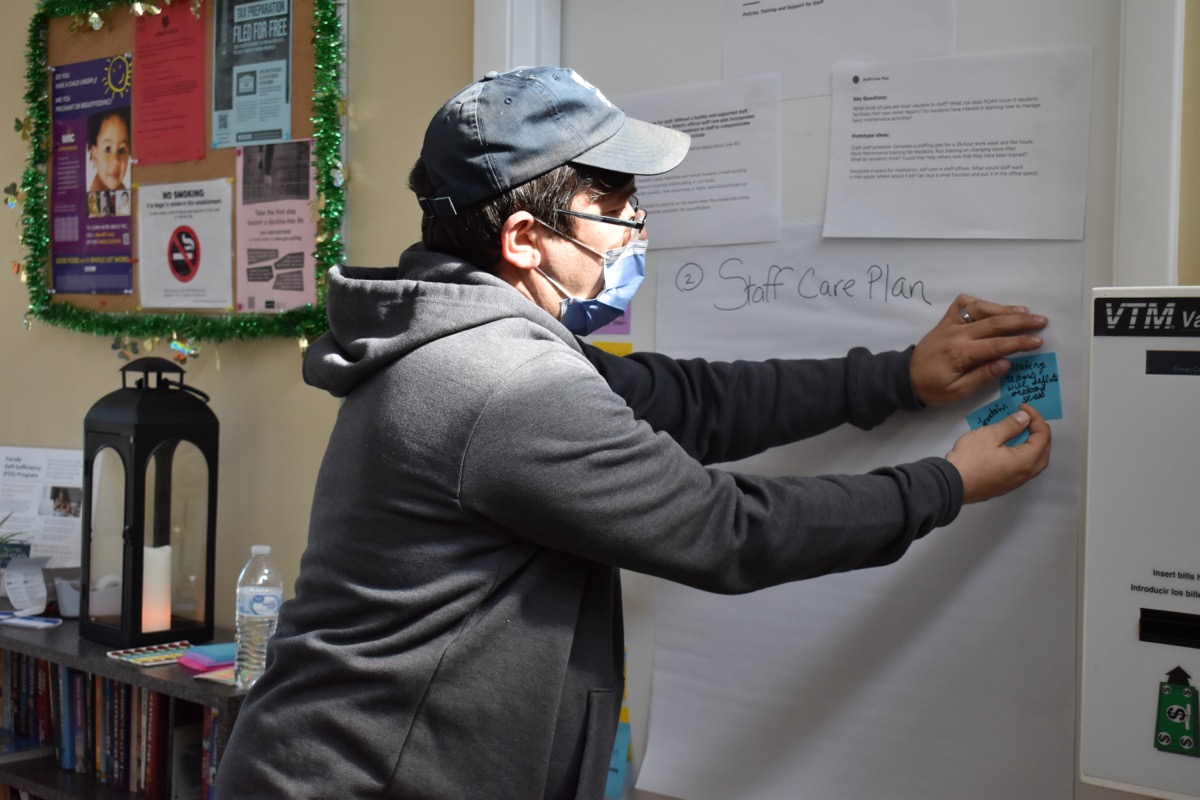|
Challenge |
Staff felt burnt out and overwhelmed |
|
Idea |
Healing days to incentivize self-care and normalize mental health |
|
Prototype |
Staff “Wellness Day” with free self-care activities |
|
Pilot |
Regular check-ins with supervisors so staff feel supported and seen |
A team of frontline staff was struggling with burnout. They loved their jobs and worked well together, but often felt overwhelmed by the amount of work they were responsible for. They also recognized that their burnout was being passed on to residents - when they aren’t able to take care of themselves or manage their workload in a healthy way, they aren’t able to show up with compassion for residents.

The answer, they brainstormed, was to encourage staff to be well at work. If self-care was accessible and sponsored by POAH, they thought, it would improve staff wellbeing at work. They developed a prototype to test an in-office “mental health day.” With leadership’s support, they closed the office and offered various self-care activities for staff to choose from.
Many staff took advantage of and appreciated the mental health day. They enjoyed the activities and even got lunch with their coworkers with their remaining time off. But while staff appreciated things like free massages and pedicures, they admitted it felt like a band-aid. Mental health days were nice, but they didn’t address the root cause. Staff said they often felt like their leadership didn’t value their ideas or concerns, and that their supervisors were rarely in tune with their frustrations. Supervisors often worked offsite and, in some cases, from a different state. Check-ins were infrequent and everyone had too much on their plate.
|
Key Learning |
Supporting employee self-care is essential, but it is not a substitute for addressing the root causes of burnout. POAH could offer staff all the wellness benefits they wanted, but without infrastructure and support from leadership, the efforts were only band-aids. |
The key learning was also important for the prototype team. While they were enthusiastic about self-care - and in need of it themselves - they had to accept that to get closer to the root cause they had to address a different problem. Building off the mental health day prototype, the team developed a pilot to incentivize more regular supervisor interactions and measure the impact on staff experience. The pilot used games to build habits, inspiration for check-in topics to encourage richer conversation and reminders to offer praise and celebrate small wins together.
Going forward, POAH is looking to support staff wellbeing on three levels:
-
Peer-to-peer: Creating spaces for peers to share ideas, challenges and self-care practices.
-
Supervisor Support: Training and coaching staff on trauma-informed supervision.
-
Organizational Support: Continued investment in employee assistance programs, new secondary trauma-responses for staff and streamlining or centralizing functions to reduce burdens on frontline staff.


